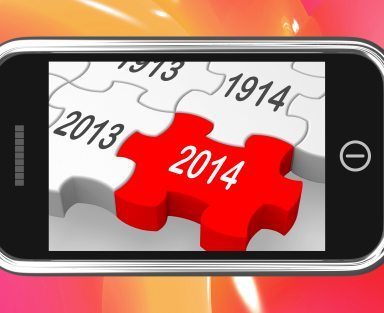Editor’s Note: With 2014 now upon us, RCR Wireless News has gathered predictions from leading industry analysts and executives on what they expect to see in the new year.
It’s always exciting to think about what the future holds for the hyperdynamic world of mobile. From my vantage point in the middle of the mobile universe, helping the world’s mobile service providers and brands connect, I have witnessed a few trends shaping up for 2014 that I’d like to share.
Over the last few years, we have witnessed tremendous advances in the way people integrate mobile technology into their day-to-day activities. New technologies have unleashed new options for mobile users to interact with their favorite brands in richer, more intuitive ways. As a result, consumers are empowered to engage with brands more directly and personally, and brands are connecting with their customers with more immediacy and contextual awareness.
The three predictions below build on the theme of context – understanding and responding to an opted-in mobile user’s key characteristics, including preferences, locations and usage trends. Content used to be king in communication, yet context has now taken the throne when it comes to mobile. Here are three areas where I envision continued progress in 2014.
1. Location, location, location: As an industry, we have just scratched the surface of the potential of location-based services, and 2014 promises to be a year of major advances. In addition to well-known marketing use cases, location-based services are starting to be used as an important tool in other areas, such as fraud protection and, for example, verifying that the location of a user’s mobile device is the same as the location of an attempted credit card purchase. What’s more, in a global survey of decision makers at Fortune 1000 companies undertaken by Syniverse and iGR in 2013, 56% of respondents said they have implemented, or are in the process of implementing a location-based services strategy, and 73% of respondents indicated they already have a location-based services strategy. Although many mobile apps use some form of location awareness now, the potential benefits of location awareness are far beyond what’s currently being delivered. In 2014, brands and mobile service providers will engage more directly using network-based location awareness and this will open up many new possibilities for secure and contextually relevant interactions.
2. “Big data” gets bigger (and better): The tremendous wealth of information offered by big data will open unparalleled opportunities to revolutionize the user experience in 2014. Big data is really all about uncovering patterns and relationships in data that can help drive appropriate, proactive interactions with customers to improve their service experience. Integrating big data with mobile technology will enable the ultimate expression of contextual awareness, since most people have their mobile device with them at all times, wherever they are. Coupling this knowledge with a real-time intelligence platform will allow us to engage customers with appropriate options at appropriate times in appropriate places, with the ultimate goal of improving their quality of life. As just one example, the use of mobile devices to collect, deliver and monitor real-time health data can enable new opportunities to react more rapidly to critical clinical events. In Nigeria, for instance, 10,000 GPS-enabled mobile phones were used to map the real-time progress of polio vaccinations across rural areas. Overall, I see 2014 as a year where the integration of mobility, big data and real-time intelligence will drive major improvements in customer relationships all over the world.
3. Messaging continues to be No. 1: Although the mobile world continues to be revolutionized by trend-setting apps and super-sophisticated smartphones, text messaging will remain the No. 1 form of electronic communication and continue to be used in more diversified ways in 2014. In a mobile world of multiple devices, operating systems and service providers, messaging is still the one common denominator through which all mobile users can communicate with each other. According to a recent Forbes compilation of 50 essential mobile marketing facts, 96% of text messages are read within three minutes of delivery. Moreover, the Syniverse-iGR survey showed that messaging is continuing to gain ground in new areas of customer engagement, with almost one-third of respondents saying they use messaging for customer or business partner outreach. Significantly, when asked what type of functions that businesses are currently using for messaging, one of the most prominent responses was customer service. Since many apps do not directly integrate messaging functions, this channel will continue to offer a range of possibilities for brands to supplement their mobile engagement in 2014.
Context is king
If there’s one theme to these three predictions, it’s that mobile service providers and brands now have an unprecedented opportunity to make mobile connections with their users in a more contextually relevant manner. Mobile users are demanding nothing less – they want to be engaged in faster, richer and more personalized ways. Context has truly become king.
How big do you think location-based services, big data, and messaging will be in 2014? Would you add any other mobile areas to these predictions?
Joe DiFonzo joined Syniverse in August 2008 and serves as the company’s CTO. He had previously served as SVP of Enterprise Mobility Solutions, leading the creation and implementation of advanced mobility solutions for enterprise customers and Internet service providers globally. Prior to joining Syniverse, DiFonzo spent 15 years at Convergys, most recently holding the position of VP of innovation. In this role, he was responsible for developing industry solution offerings for advanced customer care based on internally developed and partner technologies. He also has held telecommunications technology positions at SHL and CBIS. DiFonzo earned his bachelor’s degree in computer science from the University of Central Florida and has served on the advisory board for the TeleManagement Forum.


